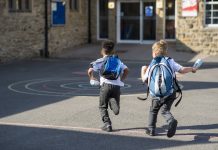The latest NEET statistics from the Office of National Statistics (ONS) report paints a disconcerting picture of UK Education and Skills in 2023 for young people. For those aged 16 to 24, over 1 in 10 are NEET (not engaged in education, employment, or training)
But the picture gets bleaker, with the ONS’s latest report also showing that 7% of UK adults aged 16 to 64 had no qualifications in 2022, and overall, 35% of adults in Great Britain were dissatisfied with the education system in September 2023, uncovering the urgent need to re-evaluate our education system.
1 in 10 people aged 16-24 are not engaged in education, employment, or trainin
Less academic more creativity
The current education system mainly looks at academic subjects and may not suitably prepare young people for the challenges in life today. There is no longer a need to memorise facts as we have smartphones at our fingertips.
Much more relevant for education to help them learn how to organise information
For young people, it is much more relevant for education to help them learn how to organise information, think creatively and discriminate relevant from irrelevant. But, in a system that teaches a fixed curriculum, these opportunities are difficult to find. Currently students are required students to listen, memorise and sit a test to evidence what they can remember, giving little credit for ideas and knowledge outside of the current curriculum. But, to thrive in today’s workplace, young people must have the skills to communicate and work collaboratively and creatively with colleagues. But with limited opportunities to develop these skills at school, how can young people become creative and collaborative thinkers?
The workplace of the future
The workplace of today also requires employees who are adaptable, and these are character traits that need to be worked on and developed early in life. This is nurtured by an educational approach that offers more choices and supports children to learn from their mistakes, using them as prompts for further learning.
But how will children learn to be flexible when all that they have experienced is that they will receive low marks if they don’t follow the rules to the letter? Children need some freedom to choose their own activities, often starting with what they enjoy, and as they experience success, their confidence will grow alongside their thirst to contribute and express ideas.
Education must no longer be JUST about imparting knowledge
Maria Montessori, the visionary educational pioneer, recognised this when she wrote: “Education must no longer be mostly imparting knowledge, but must take a new path, seeking the release of human potentialities.” “Education for Life” – she recognised that education must prepare children to engage fully in the life they are living today in order to create the one they will live in the future, not the one that their parents or grandparents lived.
When children are guided by a teacher trained in the Montessori approach, they observe children’s interests and capacities as a means to support their development. The Montessori teacher prepares an educational environment for a mixed-age group with a wide range of open-ended, hands-on activities that provide opportunities for children to choose tasks appropriate to their stage of development.
Because activities are so targeted to each child’s individual needs and interests, children are motivated and engaged and soon become able to focus their attention on the job at hand, persevere when challenges arise and look for new solutions. In short, they become self-disciplined, creative, and self-starters – exactly what is needed for the jobs that right now don’t even exist.
These soft skills are particularly nurtured by the Montessori approach educational neuroscientists call “executive function”. Recent research links executive function to academic and social skills and a myriad of other positive life outcomes. Today’s workplace is crying out for more emphasis on developing and maximising these mental skills, enabling children to navigate complex situations later in life. Today’s employers don’t care so much about what employees know – they value how they think, communicate and collaborate.
Adaptability
The world today is complex, and as we navigate the world, our education system needs to evolve to help young people develop the resilience and collaborative and social skills needed to make their way in the world. Encouraging young people to nurture their own development and to take control of their own education will empower them to further explore their own interests.
This will foster a love for continuous learning which is grounded and deliver an education based on experience from the past but fit for their future lives.
This piece was written and provided by Louise Livingston, Head of Training at the Maria Montessori Institute at www.mariamontessori.org.











